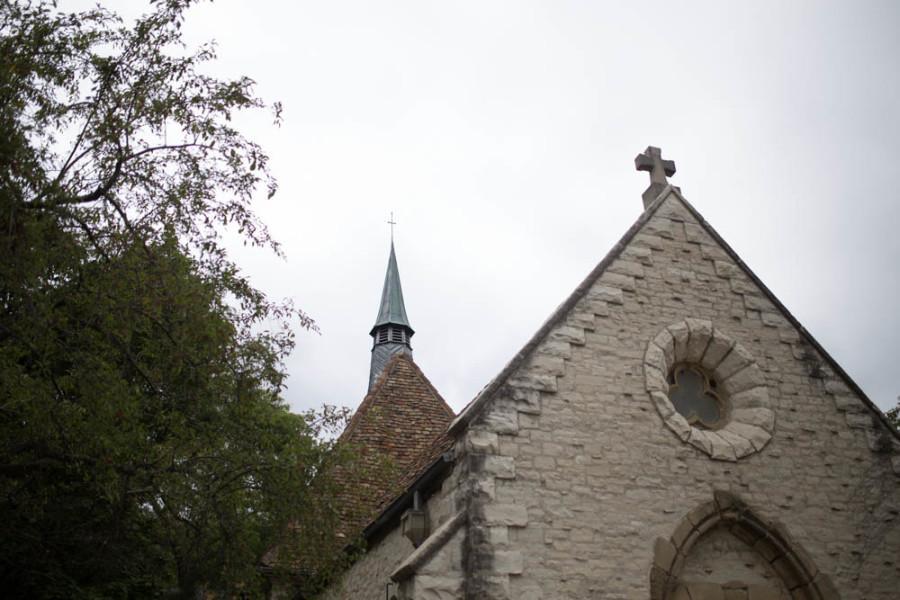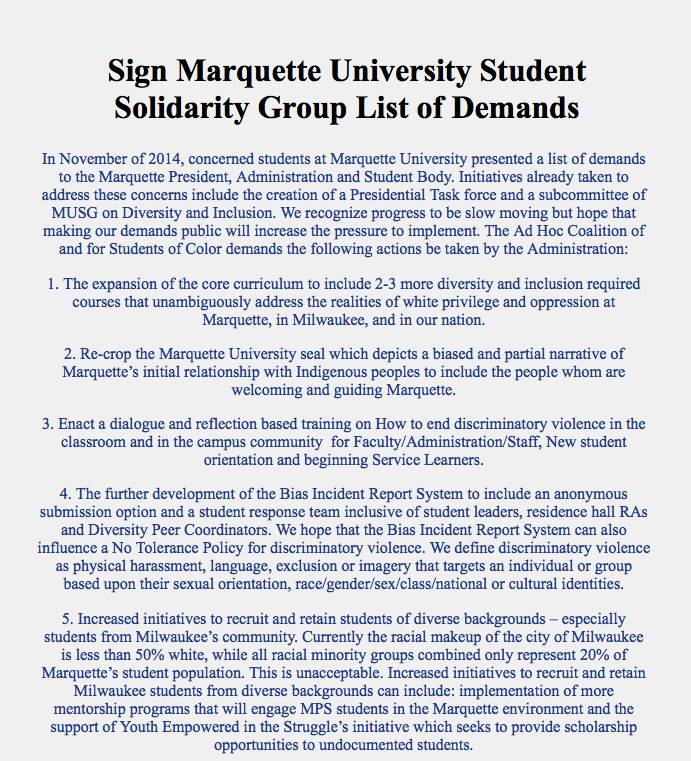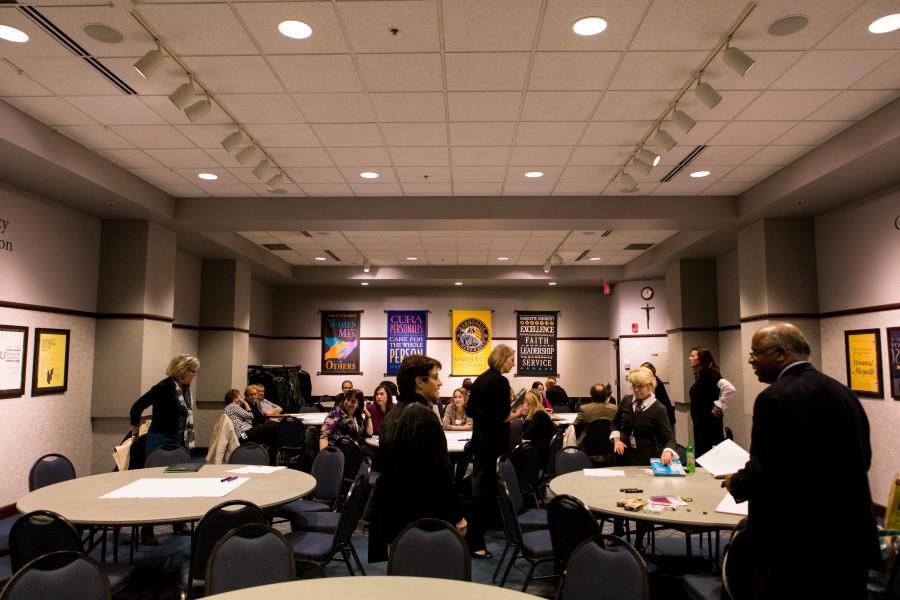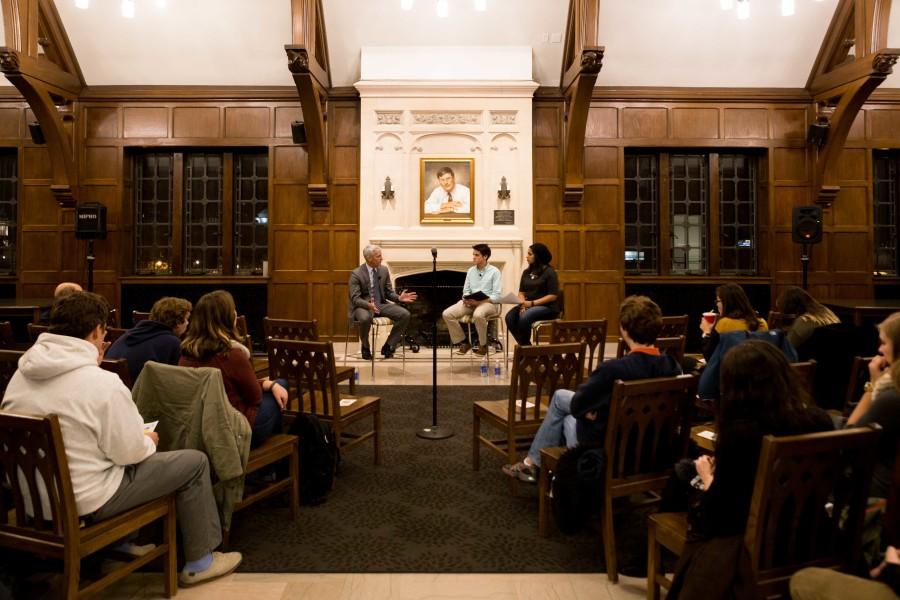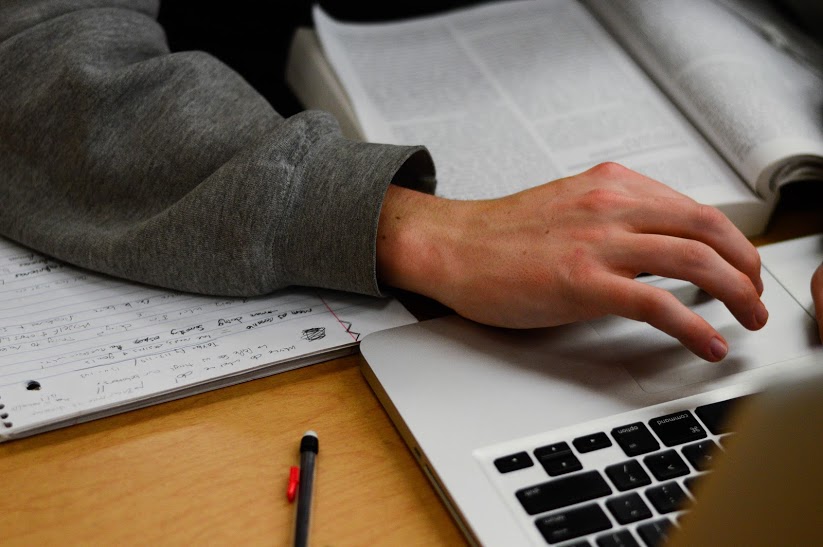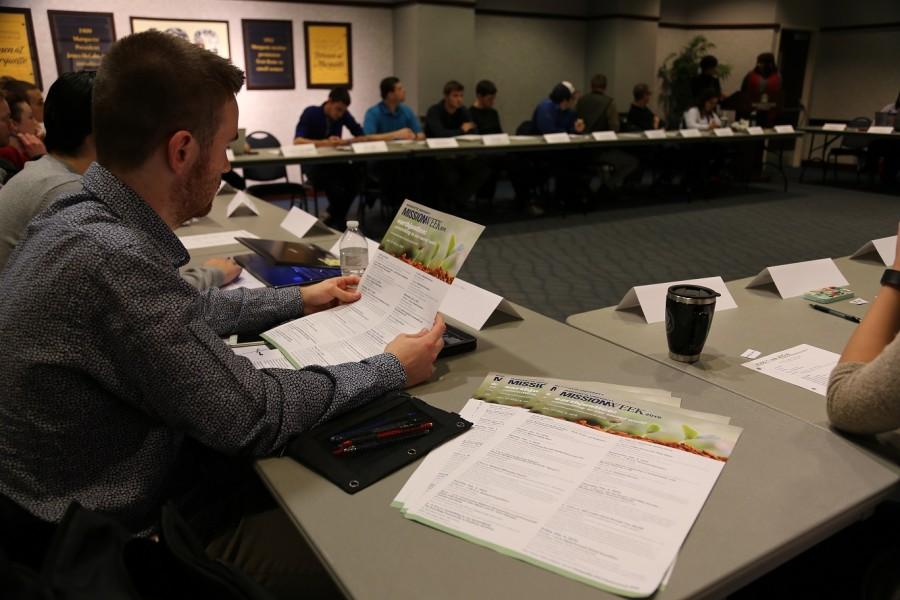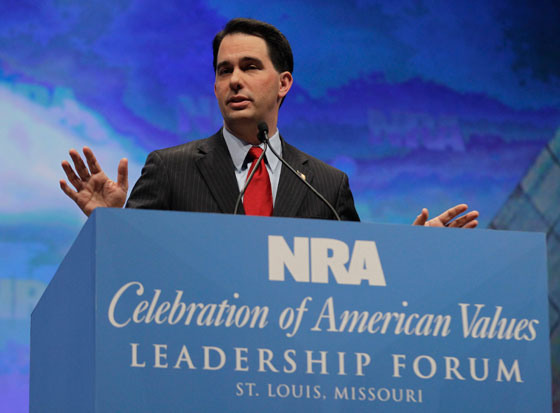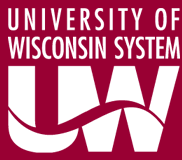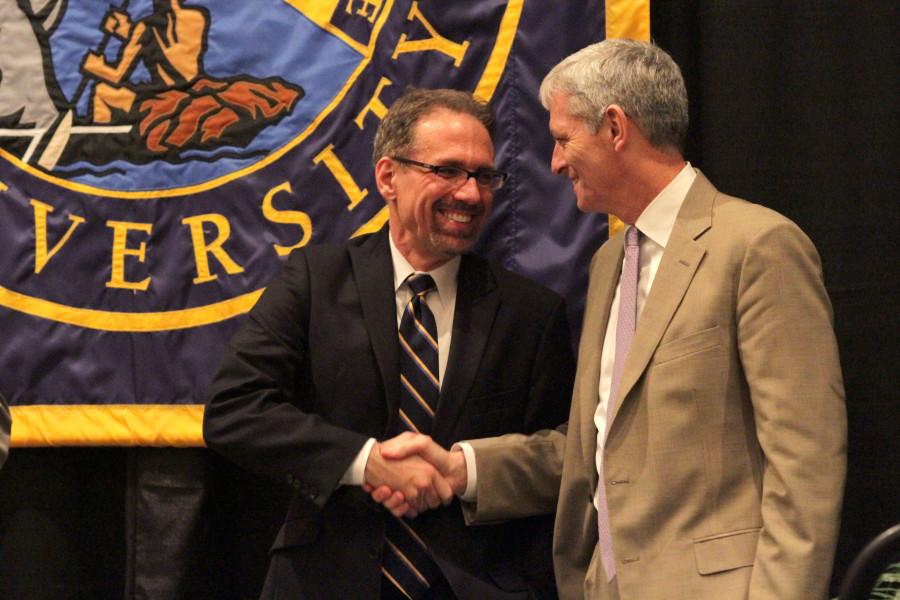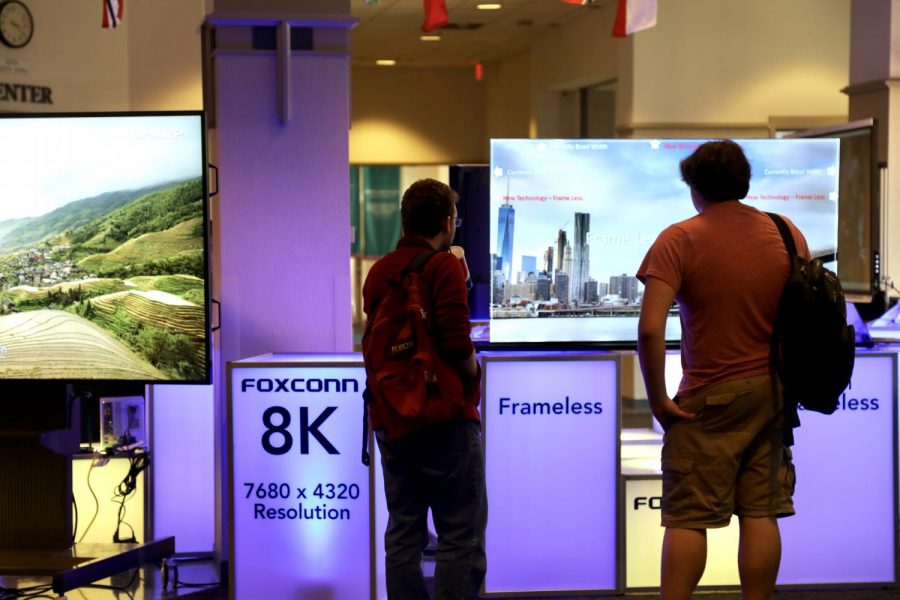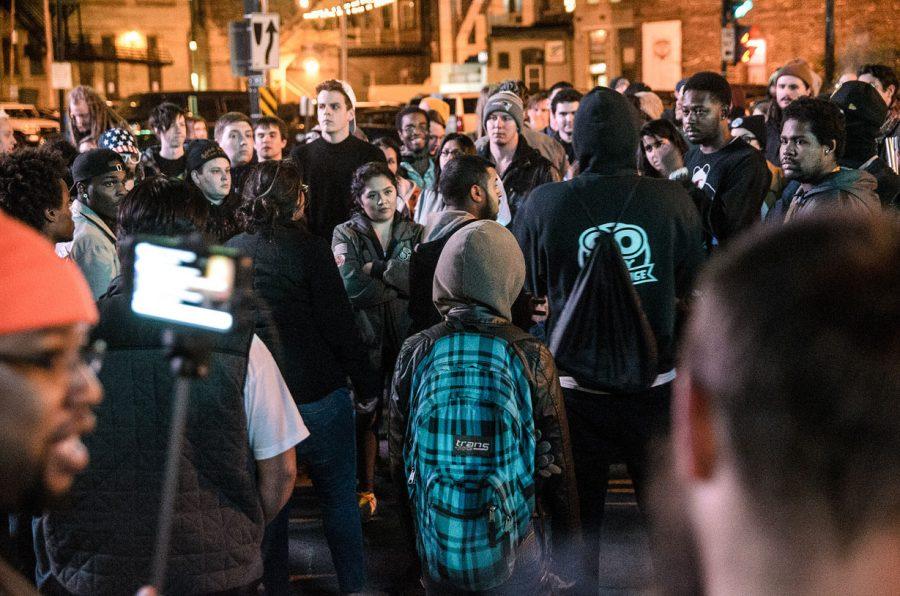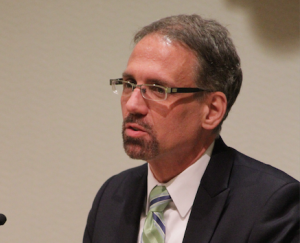
Marquette announced Monday that Daniel Myers from the University of Notre Dame will be the university’s new provost.
Myers served as vice president and associate provost for faculty affairs at the University of Notre Dame since 2011. Marquette’s provost is the second-most important person on campus, leading as chief academic officer.
The Wire sat down with Myers on Monday to discuss the position, his plans and other burning topics.
Marquette Wire: What do you think about our core curriculum? Do you see any changes being made in the near future?
Daniel Myers: I know that there are some changes being considered and there is a committee working, but I don’t know specifically what they’re going to recommend or anything at this point.
MW: There are vacancies, namely the business dean and engineering dean, that need to be filled. What is your plan for filling those vacancies?
Myers: The searches are already underway. Even though I don’t start formally until July 1, I will be involved in those and I have already set aside time in my calendar to come up here and be a part of interviewing those candidates for those positions.
MW: Marquette is currently working on a campus climate study, which is surveying students, faculty and staff. There’s been a lot of talk about diversity recently. What are your thoughts on the makeup of faculty here?
Myers: Diversity is a challenge for all institutes of higher education and it is a real challenge to develop the right kinds of critical mass in the diversity among faculty and students, in ways that support the educational mission of the place in the best possible way. I think that people who know what I have done at Notre Dame know that this has been a big emphasis of my work in a lot of different ways. I would expect to continue to work on that. I’ve heard from a number of people here that there is a real desire to work harder on that and to diversify the faculty more. I am really glad to hear that. That was an important piece of me wanting to come and be a part of Marquette, that the university is interested and values diversity and want to develop that in various ways, throughout its curriculum, faculty and student body.
MW: Do you have any plans on how we as a university would go about ensuring that diversity?
Myers: I think it’s a difficult task to develop diversity in a way that it hasn’t existed at an institution before, because there are issues related to developing a critical mass of people and a culture that is appreciative of these different kinds of diversity. There are a lot of different ways to do that and some of them are more effective than others. It takes a sort of broad range and effort from a lot of different people to make something happen. In the recent past (at) Notre Dame, we had some initiatives that came from the student body that were incredibly savvy in using social media and engaging administrators and mobilizing faculty to really make some things happen. It really took all of those different pieces to make those things work. It is my sense that the Marquette community is really serious about things and we need to coordinate some efforts across these different groups in order to make some real change.
MW: Do you feel comfortable leading the university in a strong provost model?
Myers: We have that model at Notre Dame so I have worked very closely with our provost and it has been a real partnership and it has been very enjoyable, a great learning experience for me. So I feel very prepared and very happy to be moving into that kind of role here. I think exactly what those words, ‘strong provost,’ mean is going to evolve over the next few months as I move into the new role and start to learn more about Marquette and the different administrative and academic structures here. I am really looking forward to that.
MW: What does ‘strong provost” mean to you?
Myers: I think it means you have full control over the academic side of what is happening at the university, including the budget and the hiring priorities and developing strategic direction. I will say, however, if you saw my presentation I gave during my interview time, I can see of all those, even in the strong provost role, as collaborative enterprises. You really have to involve faculty, students and staff in helping to understand and to make these decisions to do things moving forward and getting people on board. Strong provost to me does not mean dictator, it means conveyer, someone who can bring people together to talk about these things and make good decisions collectively.
MW: President Lovell is transitioning Marquette into a system with greater emphasis on STEM fields, research and technology, which is really exciting. At the same time, how do we preserve the Jesuit mission and make sure humanities do not lose resources in the process?
Myers: It is very important, and we have been through similar kinds of transition at Notre Dame. Trying to build out STEM enterprises in ways that are going to be, not only robust on their own, but also complimentary to the other things that are happening at the university in terms of our liberal arts emphasis. I would anticipate the same here. I find though, coming from that world myself, I find those as critical to the student experience in producing the kind of whole-person, formation kind of trajectory for students and outcomes for students that we want and that I think serves them best in their lives. There is no question in my mind that Marquette will continue to emphasis that tradition in how it organizes itself to train students, in addition to developing the STEM pieces more. There is no reason those two pieces can’t exist happily and, in fact, inform each other in ways of interdisciplinary connection that is really nourishing for both sides.
MW: How do you feel about the current state of Marquette’s Core Curriculum and how does it compare to that of Notre Dame?
Myers: It is very similar to ours, actually. It is interesting to think about because a lot of universities have older-style core curricula that are focused around distribution requirements. I think more places are thinking more about ‘what are the things that we want students to accomplish or experience while they are here,’ and that should define the core, as opposed to a set of courses. So I am imagining, even though I don’t know, these are the kinds of considerations that typically come up in core curricula review. And we are going through the same process at Notre Dame, actually.
MW: As chief academic officer, what are your thoughts on how Marquette is handling the revocation of John McAdams’ tenure? How do you plan to address similar situations in the future?
Myers: I don’t really know all of the ins and outs of that particular situation, other than what I’ve read in all of the news media myself. It is really not appropriate for me to comment on personnel issues here at Marquette at this point. So I will just say that I have a lot of confidence with the president and the other chairs who have been dealing with the situation and I feel confident that they are making good decisions, while being careful and fair about what they are doing.
MW: Is there anything else you would like to add about your transition from Notre Dame to Marquette?
Myers: I am just really excited to be here, everyone I have met: faculty, staff, students have been so excited about the future for Marquette and are really fired up to do some new, interesting things. I am really excited to be a part of that. I love being apart of that vibe of driving ahead, accomplishing more and doing new things. It has been my experience at Notre Dame and I really want to feel that as we are going forward and I have already felt it from all the people I met, including students. It has been really tremendous and very exciting to work with them.


